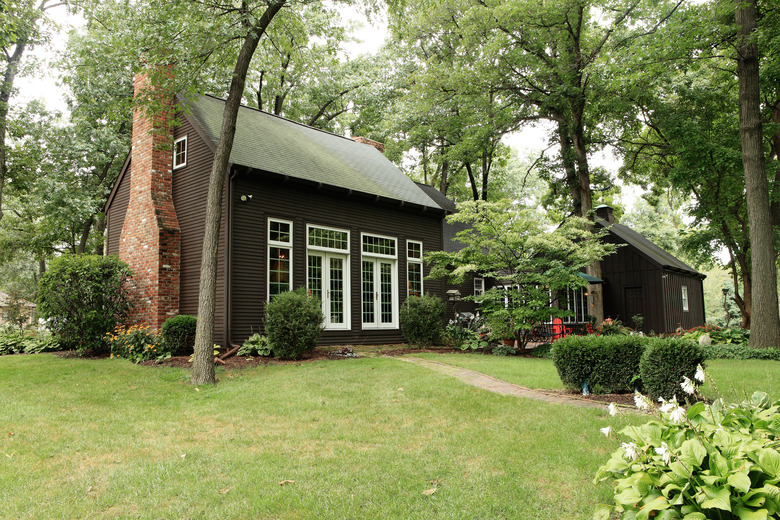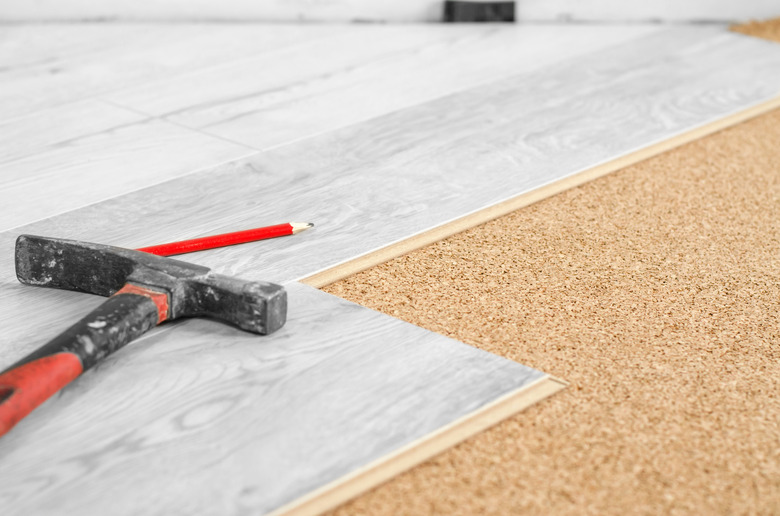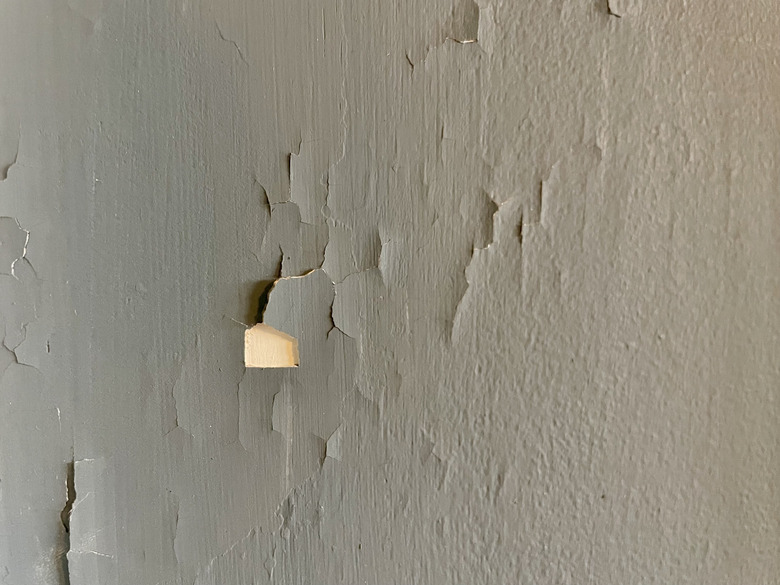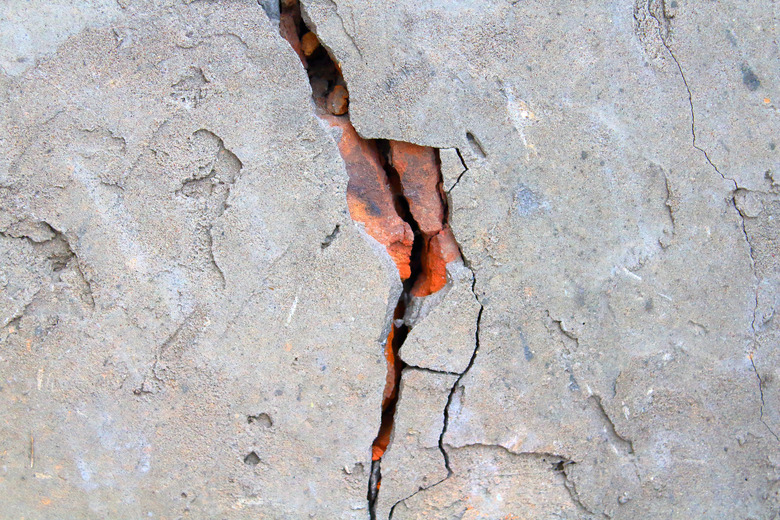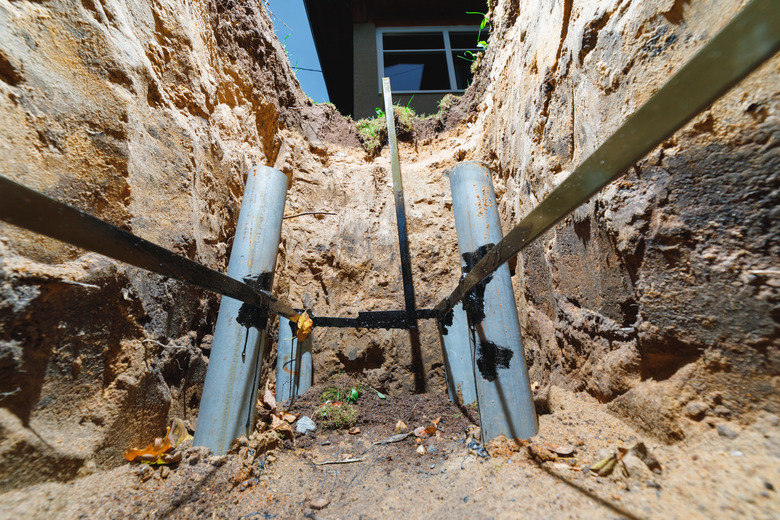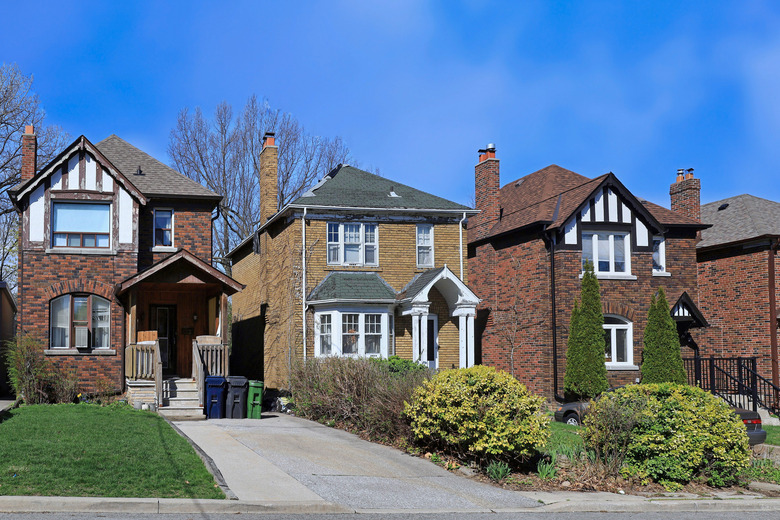Buying An Old House? Consider These 5 Things Before You Sign The Deed
The built-in bookshelves, the charming (and convenient) laundry chute, the leaded glass windows — what's not to love about buying an old house? Well, there can be quite a lot if you don't have much tolerance for dealing with home improvement issues on a routine basis.
Beyond the craftsmanship of an old house, there can be dangerous building materials like asbestos, structural issues, and mysterious leaks that can make even the most experienced plumbers scratch their head.. However, that doesn't mean that you should run away from the colonial or craftsman home of your dreams. It just indicates that you need to be more prepared than homebuyers who are interested in a brand-new home.
So, are you ready to buy an old house? Here are some things for homebuyers to consider — according to the experts — before signing on that dotted line.
1. Added Home Improvement Costs
1. Added Home Improvement Costs
Maintaining an old home can cost you a bit more than you might have expected, which can be especially gutting after a down payment and closing costs, so it's important to understand the level of investment up front. Though your home may have looked move-in ready during the tour, the basement could flood just a month after you unpack.
"Old houses are a labor of love, and if you're not ready to take care of them, they're probably not a fit for you. Just like with an old car, you can't expect it to be at 100 percent peak performance. There are always things that are going to have to be updated on an older house," says Amy Broghamer, a real estate agent in Cincinnati who specializes in buying and selling old houses.
An owner of old houses herself, Broghamer had to replace all of the windows in her previous home as well as add insulation, which made for a hefty bill.
"Those are things that I call invisible money. Because it's not a fancy kitchen with beautiful tile and countertops. It's windows and insulation, but it makes a big difference when you're living in the house," she says.
Tip
To combat the inevitable issues that will pop up when buying an old house, Broghamer suggests that homeowners should be prepared to spend or save 3 to 5 percent of their home's value every year for maintenance. (So, if your home is worth $300,000, that would be upward of $15,000 annually.)
2. (Potentially) Dangerous Building Materials
2. (Potentially) Dangerous Building Materials
One of the aspects of older homes that can give many first-time buyers the willies is the likely presence of dangerous building materials, like asbestos and lead paint. But before you start to search for a new-construction home, you should know that unless these hazardous materials are disturbed (or, in the case of lead paint, actively chipping and falling onto the floor), they aren't going to hurt you, says Ryan Waller, a Toronto-area realtor who specializes in older homes.
"A lot of people really love the charm of an older home, and as soon as they hear the word "asbestos," it freaks them right out and they walk away," he says. "We know these [dangerous materials] were being put into these older homes when they were new. There's a chance you may find lead paint. You may find asbestos. If you're concerned about that, it's best to get it tested — there are many companies that do this pretty easily."
Tip
Much of the danger that occurs with building materials like lead paint (which you can be sure you have if your home was built before 1978) and asbestos is when you are tearing down walls or doing other types of extensive renovations. Call a professional asbestos abatement team or lead-certified renovation firm that can safely handle these materials before you start to demo.
3. Foundation Problems
3. Foundation Problems
When you're buying an old house, the most important thing to examine is the structure. Would-be homeowners are understandably wary of fixing expensive structural issues (which can range from $500 to a whopping $10,000) that can often plague older houses. The best way to fight these fears is to have some base knowledge of foundations before you tour — like the type of foundation you're looking at.
"One of the biggest things we look at [with a buyer] is the foundation. And what we've learned is that stone foundation — while it looks a little concerning to someone who is not used to looking at it — is generally the most solid foundation. Stone is actually more stable than block or sometimes even poured foundation," says Broghamer.
Broghamer also says not to be too freaked out by sloping, uneven floors in basements, as this was often designed to draw in water and drain it. Actual foundation issues to watch out for include:
- Cracks in the walls and ceilings
- Doors and windows that get stuck
- Sagging roof
- Heavy moisture in the basement
4. Outdated Electric
4. Outdated Electric
If you've ever watched a renovation reality show, you know the looks of horror when the contractor announces there is knob and tube wiring in the walls. But is it actually something to be worried about? Not necessarily, according to the International Association of Certified Home Inspectors, which indicates that it's not dangerous in and of itself, but it can be if it's been incorrectly modified. However, homeowners' insurance companies tend to deny coverage unless an electrician deems the house safe because there is an increased fire risk.
"Buyers will want to know, 'Does this have knob and tube wiring, and is it something I need to be worried about?' Over time, the house maybe originally had knob and tube wiring, but it's likely the house has been modified to copper or aluminum, and it no longer has [knob and tube] or it has a combination of knob and tube and something newer," Waller says.
Bottom line? Ask your agent for advice on whether or not to walk from a potentially sketchy electrical system. You'll likely learn more once you go through the home inspection phase of the buying process.
5. Proximity to Neighbors
5. Proximity to Neighbors
If you're the type of person who wants to borrow a cup of sugar from the neighbor and attend regular block parties, there's a good chance an older house in an established neighborhood is the right choice for you. However, if you prefer to only speak to your neighbors if their mail accidentally got delivered to your house, then you may want to give an older house a second thought.
Established neighborhoods can be attractive to buyers because there's generally a built-in social network, says Waller.
"One of the great things about older houses is that the structure itself is built for neighborhoods and neighbors. There are front porches that people hung out on and all of these out-front elements in an older home. In modern homes, it's more focused on backyard entertaining. Anyone considering an older home typically appreciates that it has more of a neighborhood feel and that there's a social aspect. But if you're not that social, you may not," says Waller.
